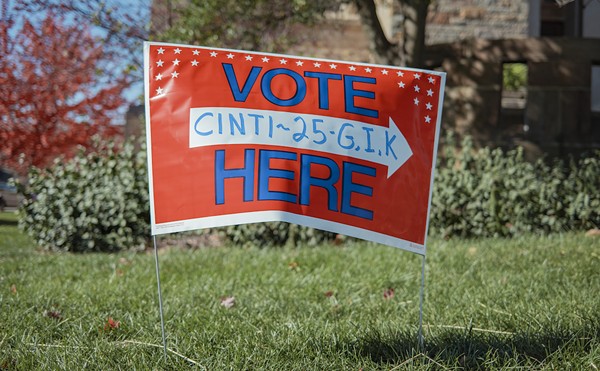|
You've been drinking at a bar and get into it with the guy next to you. The next thing you know you're in the back of a police car on your way to the Hamilton County Justice Center for "processing" on an assault charge.
You don't have money to make your bond, and you're not sober enough to figure out who to call for help. That means you'll end up with a court-appointed public defender when it's time to go before the judge.
Is the defense provided going to be adequate?
An outsider is going to have the most objective and credible viewpoint to determine if all is right in our criminal justice system. That's because money and supervision for prosecution and public defense come from the same place — Hamilton County — creating a potential conflict of interest.
Enter the Open Society Institute (OSI), which doesn't believe all is well in Ohio. The organization has awarded a grant to Janet Moore, a lawyer with the Ohio Justice & Policy Center (OJPC) in Cincinnati, to look into indigent defense across the state.
"Ohio's ineffective and inefficient public defender system contributes to a class disparity in incarceration rates," OSI's grant award press release says.
"Moore will work to reform Ohio's current system for providing counsel to low-income residents."
OSI describes itself as "a private operating and grant-making foundation (that) works to build vibrant and tolerant democracies whose governments are accountable to their citizens." They can be found in more than 60 countries beyond the United States. And it's clear to them that we have a problem here.
Some local attorneys say there's been a problem in Cincinnati for years, as evidenced by local courts routinely sending poor people to jail because they can't pay fines (see " Jailing the Poor," issue of Feb. 15, 2006).
Bill Gallagher, a local attorney, says the inadequacies in Hamilton County's public defender system will be revealed soon. He says the National Legal Aide and Defender Association has completed a review of the county system and is close to publishing their findings.
"I think you're going to see extreme criticisms of training, case loads and support," Gallagher says. "There is no social worker on staff who can help lawyers find alternatives to incarceration. Up until recently there was only one investigator to support all the entire staff."
He says that incompetence is so ingrained in Hamilton County that those involved in the system aren't even aware of what an adequate defense ought to look like.
"It's a horrible culture, and it's got to change," Gallagher says.
Moore's job is to look at all 88 counties in the state to identify changes that are needed. She's in the company of community organizers, advocates, journalists, lawyers, scholars and others sharing more than $1 million in OSI grants.
"The new fellows include a community organizer who fights to protect the rights of non-citizen detainees after seeing her own family torn apart by federal immigration policies; a lawyer who compares his own treatment in the criminal justice system with that of his clients on death row to spark debate about capital punishment; and a man and woman on the opposite sides of a wrongful rape conviction who now work together to raise awareness about the problems with eyewitness testimony," says the OSI press release.
The list of grant winners, or Soros Justice Fellows, makes it clear that Ohio isn't alone is dealing with the issue of providing adequate defense to those who can't afford to pay for it; grants have also been awarded in Arizona, California, Illinois, Louisiana, New York, North Carolina, Texas, Washington, D.C. and Northern Ireland. Each will be given a 12- to 18-month stipend ranging from $45,000 to $79,500. ©





